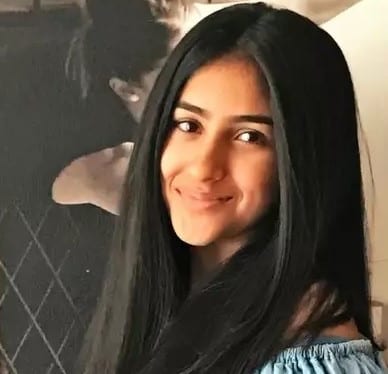Describe your life prior to diagnosis:
I was enjoying school and learning to play golf, basketball and piano, but my mom noticed that I seemed shorter than my friends and classmates, and somewhat too skinny. Around November 2013, when I had just turned 9 years old, I got a really high fever. I was rushed to the doctor, who said it was caused by a virus. After that, I started running a low temperature almost every month. In addition, I would tire easily after playing sports, which I truly loved to do. My grades in mathematics did not seem to be as good as they used to be. It was not due to lack of trying, but I found it hard to focus. Sometimes, I also complained of a headache. The eye doctor ruled out weak eyesight as a cause.
How did you come to know (or suspect) that you have celiac disease?
In June 2014, my pediatrician ran a couple of blood tests for me. Some of the things my doctor mentioned were tTG, diabetes, thyroid, etc. She was surprised at my sudden bouts of fever, since I had been pretty healthy until then. The tTG test (tissue transglutaminase) came back very high, and I remember my parents being extremely worried about it.
I was then taken to see a gastroenterologist, who said that I would need to undergo a biopsy to confirm celiac disease. My parents had no clue about celiac disease, and spent the whole night Googling its symptoms and effects. My grandparents flew down and my whole family congregated at the Children’s Ward early in the morning of June 19th. I was a little scared, but also somewhat excited about this whole process. It seemed I was going to war and perhaps it was the start of my war against gluten.
The nurses at the hospital were incredibly nice, and gave me some sort of medicine to smell which made me rather sleepy. When I woke up after the biopsy, my throat felt rather dry and itchy. My mum seemed to have really red eyes and kept on hugging and kissing me. The doctor came to see me and told me that the good news was that they now knew what was making me sick. I had celiac disease and gluten was triggering my immune system to attack my small intestines, which showed signs of atrophy. The next step was now to become gluten-free, since that is the only known treatment for celiac disease.
Did you face any challenges in getting diagnosed? What were your symptoms like?
I seemed to have missed the typical or obvious symptoms of celiac disease like stomach pain and indigestion, but due to the non-absorption of nutrients my body had no nourishment. Hence, my immunity was really low and I was falling sick every day. My short stature in comparison to my classmates also seemed to have a logical explanation now.
What was life like after diagnosis?
My parents decided to dedicate our existing kitchen to being gluten-free for me and use another room as a kitchen for cooking food with gluten. Family support of the gluten-free diet is vital. It is important that all family members and/or staff who may cook be aware of gluten-free dietary requirements. It’s important to educate them about avoiding cross-contact in the home, especially if the other family members don’t have these conditions.
The good thing about Indian cuisine is that it is naturally gluten-free, excluding chapattis. Hing surprisingly is a big no-no since commercially it may be mixed with wheat. Once we were back home everything seemed terribly difficult at first, especially my tiffin for school. My mom got a special grinder for my kitchen to prepare my gluten-free flour. Now instead of my staple sandwich to school, I started taking cut fruit, vegetables, gluten-free idlis, rice with sugar, gluten-free crackers and energy bars. Since food labels in India are not very good, even if the product says gluten-free one is not sure of the facility it was processed in. If I go to a wedding, I stick to simple stuff like rice and chicken curry. Outside dining was very limited in the beginning as my parents didn’t want to take any chances with my recovery. After around a year of following a very strict gluten-free diet, my tTG levels came down to normal.
Is there anything else you’d like to add to your story?
In 2018, I also started Gluten Free Jio, a social project that aims to increase awareness and access to information on celiac disease and gluten-free diets in India. Last year, I created a website to share tips and tricks for navigating all aspects of the gluten-free life.
Motivated to change not just myself but also my broader community, I started conversations with various local leaders, government schools and community organizations. I began conducting interactive, educational sessions in government schools in Chandigarh and Punjab (India). I conducted over 1,000 tTG tests to determine the presence of celiac disease. I also authored a children’s book and distributed it in various government schools. These efforts were supplemented digitally through my YouTube channel (available in Hindi, Punjabi and English).
Although I was unable to continue the in-person sessions in schools this year due to COVID-19, I started an online webinar series in which authorities in the celiac community discuss issues related to living with celiac disease in India. Furthermore, I recently launched an app (currently active in the Chandigarh tri-city area and Punjab) that allows users to identify gluten-free restaurants near them and grocery stores that stock gluten-free brands. In the coming months, I am hoping to make the app available to a pan-India audience. Additionally, my website is in the process of becoming an online marketplace for gluten-free products.
It is my desire to donate the majority of the profits to celiac disease organizations that are conducting major research on a cure for celiac disease. Through sustained effort, I have been able to establish a strong social media presence with over 12,000 (and growing!) followers on Facebook. My work was applauded by the Mayor of Chandigarh, last summer.



